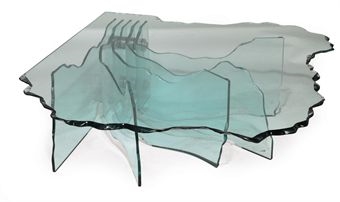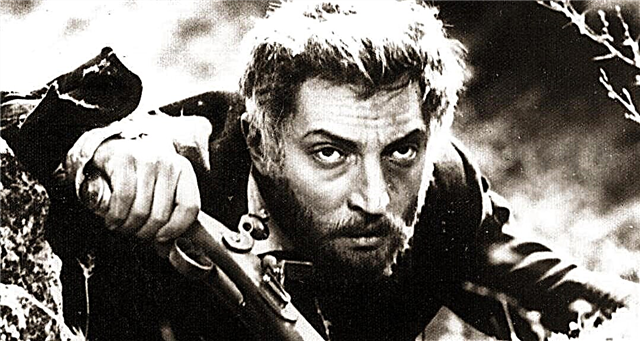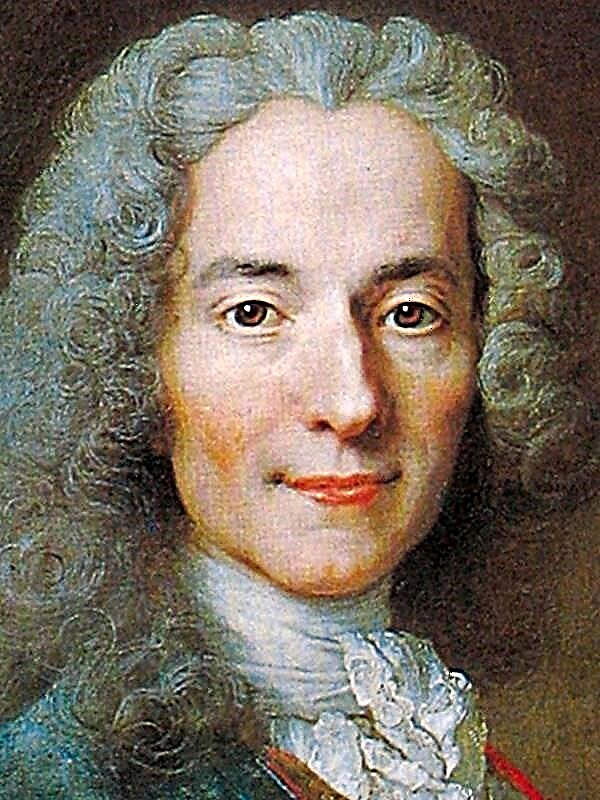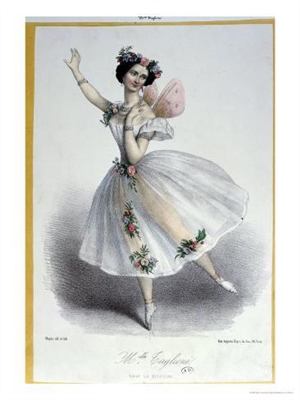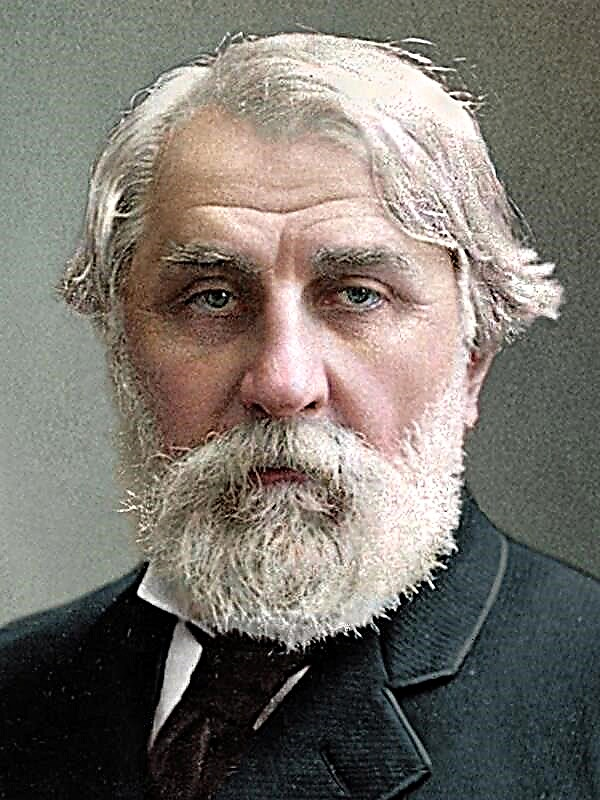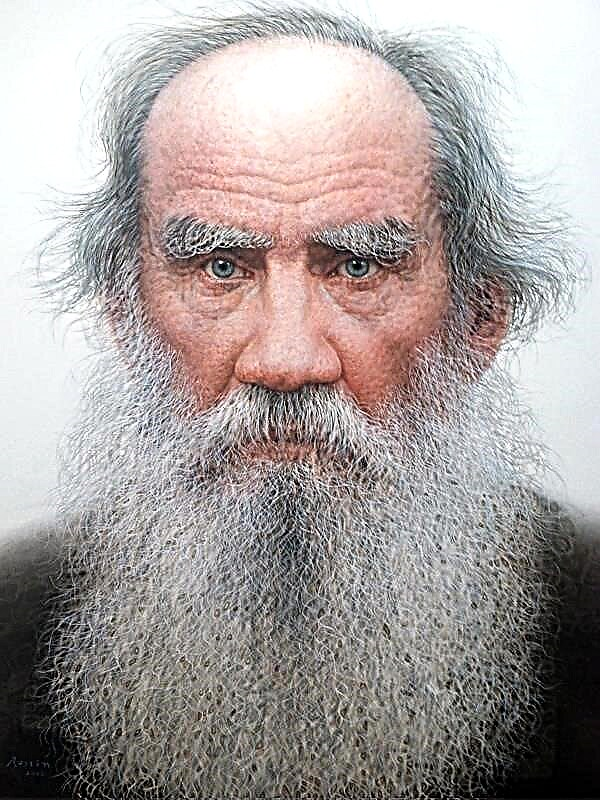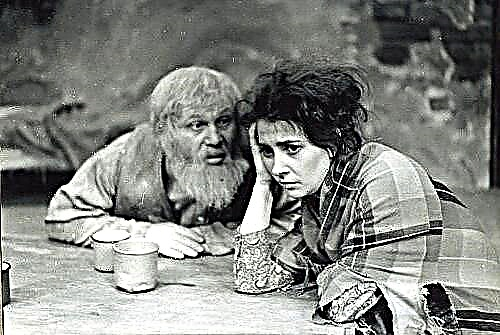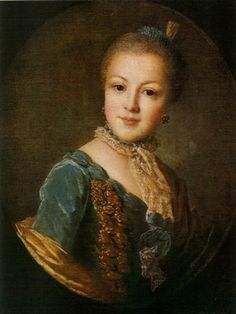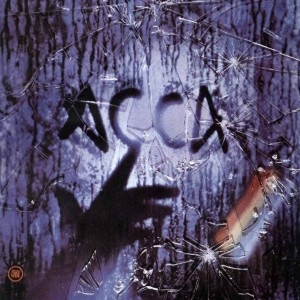Anton Pavlovich Chekhov is a Russian writer of the late 19th century, a short genius, the author of the famous dictum “brevity is the sister of talent”, the author of many concise stories, short stories and plays. One of Chekhov's most popular creations is the Little Trilogies series. The final work of this cycle is the work “On Love”.
History of creation
The story of this story written by A.P. Chekhov in 1898, originates in the biography of the writer. In the image of Anna Alekseevna, in whom the main character, Alekhine, is in love, the personality of Lidia Alexandrovna Avilova, a Russian writer and memoirist, is guessed. It was presented to Chekhov by Sergei Nikolayevich Khudyakov, the publisher of the Petersburg newspaper. At that time, as Lydia Alexandrovna herself wrote in her memoirs, she knew everything written by Chekhov by heart.
At the time of the first meeting with Chekhov, Avilova was the wife of Mikhail Fedorovich, who could not understand her hobbies in writing and literature. She chose her husband “as a thing” and had deep respect for him, but there was no question of love. Avilov knew about the correspondence of his wife and Anton Pavlovich, and even read some of the letters. Chekhov helped Anna Alekseevna in the publication of her works, acted as a reviewer and personal critic. Warm correspondence was replaced by rare and often unexpected meetings. The entire depth of the relationship between Chekhov and Avilova is revealed in her memoirs in A. P. Chekhov in my life ”, published only in 1940. The writer's love experiences were reflected in his work. The story “About Love” is an artistic expression of the deep and irresistible feeling that Anton Pavlovich Chekhov had for Lydia Alexandrovna Avilova.
Genre and direction
Anton Pavlovich Chekhov, as already mentioned, is a master of a brief literary form. His favorite genre is a capacious miniature story in which the deep philosophy of author’s thought is embedded. The genre feature of Chekhov's works helps in revealing a realistic method. As you know, the writer worked in line with realism. The detail, the most important element of Chekhov's story, helped the prose writer achieve harmony between the small “narrative” form and the deep realistic content.
The story “About Love” ends the cycle “Little Trilogy” (the name is not copyright, given by the researchers), united by Chekhov’s cross-cutting theme of the life of “a man in a case”. The main characters are the narrators of their stories, each of them is the main in its part of the cycle.
Essence
What is the story of this creation of Chekhov? Surprisingly, the title exhaustively reflects the main line of the work - love.
The plot basis is the story of one of the heroes of the Little Trilogy - Pavel Konstantinovich Alekhine. Pavel studied at the university, and after the death of his father, he was forced to take up his estate in Sof'in in order to pay off his father's debts. Work on the ground, with peasants weighed on a young man who was accustomed to a cultural society. Gradually Alekhine refused luxury, which was reflected in his everyday habits. Soon the main character was promoted to justice of the peace, and on one of the ships he met the kind and simple-minded Dmitry Luganovich. At a dinner with a new friend Alekhine met Dmitry's wife, Anna Alekseevna, who left a vivid impression on himself in the minds of a nobleman. As he interacted with a beautiful and intelligent woman, Alekhine began to realize that his love feeling for her was by no means unrequited. At the same time, the protagonist was tormented by a sense of guilt in front of the Luganovich family, because both the husband and wife were very supportive of him. However, neither Anna nor Paul confessed to each other in their feelings.
The feeling of unattainable happiness in forbidden love subsequently began to torment Anna Alekseevna. She was easily irritated and even treated for a nervous breakdown. Her attitude towards Alekhine has changed. At that time, Anna's husband was promoted to the chairman of one province, the spouses were to move. In the scene of the wires of Anna Luganovich, the denouement of this unspoken novel came. In the compartment of the train there was a tearful explanation between Pavel and Anna, after which they parted forever, and the main character came to realize the lost happiness.
Composition
The compositional characteristic of Chekhov's narrative is considered to be the “story in a story,” which the creator often refers to. This technique enables the author to achieve both objectivity of presentation and saving of language resources.
A similar compositional structure is characteristic of many of Chekhov's works: first, it speaks of a specific situation or case in life. The mention of this situation serves as an impetus for an associative transition to the main story (usually a monologue) of the protagonist.
For example, the text we are analyzing begins with the mention of Paul about the history of the relationship between the cook-drunkard Nikolai and the beautiful Pelageya, who suffered from the first insult and beatings. A small lunch sketch flows into Alekhine’s discussions about the meaning and issues of love. This technique allows you to smoothly introduce the reader into the fabric of the work and only then begin the main narrative.
The ending serves as a frame for the art center of the work. Markers of mood of the protagonist are skillfully woven into the literary border - the change of weather outside the window. Alekhine began his love story when “the windows showed a gray sky and trees”, but at the end of the story “the rain stopped and the sun came out”, testifying to the man’s spiritual cleansing.
The main characters and their characteristics
A short form of narration involves a small number of actors. A.P. Chekhov for the plot is important two or three characters. Often a storyteller is selected whose description depicts the author’s pen in detail.
- Alekhin Pavel Konstantinovich - the main character. In the story "About Love" there is no detailed description of the portrait of a man. It was given by Chekhov in Gooseberry. The author describes Paul as a forty-year-old man, more reminiscent of an artist or scientist than a representative of the landlord estate. Paul is a nobleman by birth, but his father’s debts leave him without a livelihood. "Beloruchka", not accustomed to physical labor, Paul is burdened with work on the estate. Life in Sofya makes Alekhine forget about culture and education. One of the characteristic qualities of Paul is industriousness, helping him to become a justice of the peace in his locality. Thanks to this position, Alekhine meets Dmitry Luganovich, whose wife he falls in love with further. In general, the image of Pavel Alekhine is the image of an unhappy and lonely landowner who cannot decide to take a crucial step, because he is afraid of losing a good reputation.
- Dmitry Luganovich - A good friend and friend of the protagonist, fellow chairman of the district court and a wealthy nobleman. At the beginning of the story, Alekhine describes his benefactor as a kind and simple-minded person, but already in the middle ponders why Anna Alekseevna married such an unremarkable and boring person.
- Anna Alekseevna Luganovich - the wife of Dmitry Luganovich, landowner, mother of two children. The portrait of Anna Alekseevna is also given through the eyes of Alekhine. According to his description, it becomes clear that such a woman as Anna Alekseevna had never met him before. He “immediately felt a close being in her.” The heroine, like her husband, has kindness and cares for Alekhine. Unlike Mr. Luganovich, Anna is young and smart. The feeling of Pavel Alekhine does not remain unrequited - he always saw in Anna's eyes that she was waiting for a meeting with him. Just like the main character, she did not give free rein to her feeling, fearing loss of position, husband, children, and, in the end, lies that would be uncomfortable for both of them.
Topics
One of the main topics of the story “About Love” is the theme of human happiness and its unattainability. Chekhov's heroes live a settled, comfortable life. The shackles of such an image not even of life, but of existence are so strong that even such a strong feeling as love is not able to force the heroes to leave the comfort zone. Both Alekhine and Anna Alekseevna are suffering - this is evidenced by the emotional scene of their farewell, but the happiness for the heroes remains forever lost.
Paul’s reflections provide an answer to the question “why was happiness in love impossible for these two heroes?” They asked too many questions about how to love properly, either being in love with someone's wife, or being married to a good and kind person, while having two children. Only later did Alekhine realize that the boundless and dominant feeling over him does not give in to laws, does not fit into the framework and does not tolerate numerous questions. Happiness is beyond the categories of sin and virtue. Reasoning is only a hindrance to a higher feeling, but for Chekhov characters this truth is revealed too late.
Problems
The problems of the story “About Love” reflect the well-known Chekhov theme of “a man in a case”. Opening from an unusual side, the "case" is present in the images of all the heroes of the work.
- Pavel Alekhine is a nobleman who settled in his father’s estate. Village life gradually changed the perspective mind and abilities of the young man. Rooted habits have influenced character. The protagonist, it turns out, is weak in making a fateful decision and refuses the huge responsibility that entails the recognition of his feelings. It's easier for Pavel to lose his beloved woman than to break the shackles of his own case.
- Mr. Luganovich is also a modification of the image of the "case" person. The “case” of Luganovich is manifested in the limitations of his mind and the indifferent attitude towards an intelligent society. The type of person who personifies Luganovich is not condemned or rejected by society. On the contrary, Dmitry is a successful businessman, but the lack of spiritual development contrasts with the sensuality and mind of his wife Anna, creating the impression of him as a person who is accustomed to go with the flow and indifferent not only to secular society, but also to family happiness.
- Anna Alekseevna also prefers the “case” existence to radical changes in the name of her own happiness. The heroine, feeling love for Pavel, does not want to sacrifice her close and understandable life, love for children, reputation, family ties ... The new life, as a synonym for the unknown, scares her, and Anna, like Alekhine, also does not have enough strength to make a decision. Painful love spills over into the heroine’s neurosis, and she manages to secretly reproach Paul in everyday conversations.
Thus, the problem of the story “About Love” very subtly emphasizes the main theme of the “Little Trilogy” - the problem of “a man in a case”, the main characteristics of which in this case are indecision and the absence of a rush for change to cultivate one's own happiness.
Meaning
What did Chekhov want to say with the story “About Love”? The idea of Chekhov’s thought is to expose human weaknesses that do not allow the hero himself to follow the voice of the heart. The author shows people whose will is constrained by external circumstances, but the person himself can be strong enough to overcome generally accepted norms and sacrifice a good position in society. The main characters, on the contrary, turn out to be weak and follow generally accepted morality.
The main idea laid down by Chekhov reveals the idea of how a person can kill a high, bright feeling, following social laws. Integrity does not guarantee happiness, and happiness can only seem like a ghostly sensation of love and leave without leaving a trace. The writer, showing representatives of society at the end of the 19th century, pronounces a sentence on the very structure of the social system, which does not allow people to express their desires even in such a personal and deep feeling as love.
Output
What makes A.P. Chekhov? A short story brings to the surface the problems of unattainability of happiness, human weaknesses and the philosophy of love. The work is contradictory, ambiguous, as its characters are ambiguous. The duality of characters and circumstances forces the reader to reflect on the images and actions of the characters, giving them their subjective assessment.
The author’s position here remains unmarked. It can be assumed that the author’s words are embedded in Alekhine’s mouth, and then one can approximately judge the attitude of A.P. Chekhov to his characters. And yet, the finale of the work remains open, presenting the reader the opportunity to take stock of his own.
One thing can be stated with accuracy: “About love” - this is a story, a warning from the reader that love cannot obey any laws.
Criticism
Chekhov's contemporaries appreciated the last part of the trilogy.
A. Izmailov noted the dramatic atmosphere of the work, which is characteristic of Chekhov's works of the late 1890s. The critic wrote that in the work of a famous writer, a turning point begins, through which all the largest literary figures of the 19th century passed - Gogol, Dostoevsky, Leskov, Tolstoy.
A. Bogdanovich described Paul as a man without “pride, strong will and energy”, who missed two wonderful opportunities in his life - the opportunity to follow his calling and be happy with his beloved woman.
A. Skabichevsky saw the reason for the failed happiness in the empty existence of heroes. Life without a goal is the main executioner of the case man, with whom Pavel Alekhine and Anna Alekseevna appear in the story "About Love".

